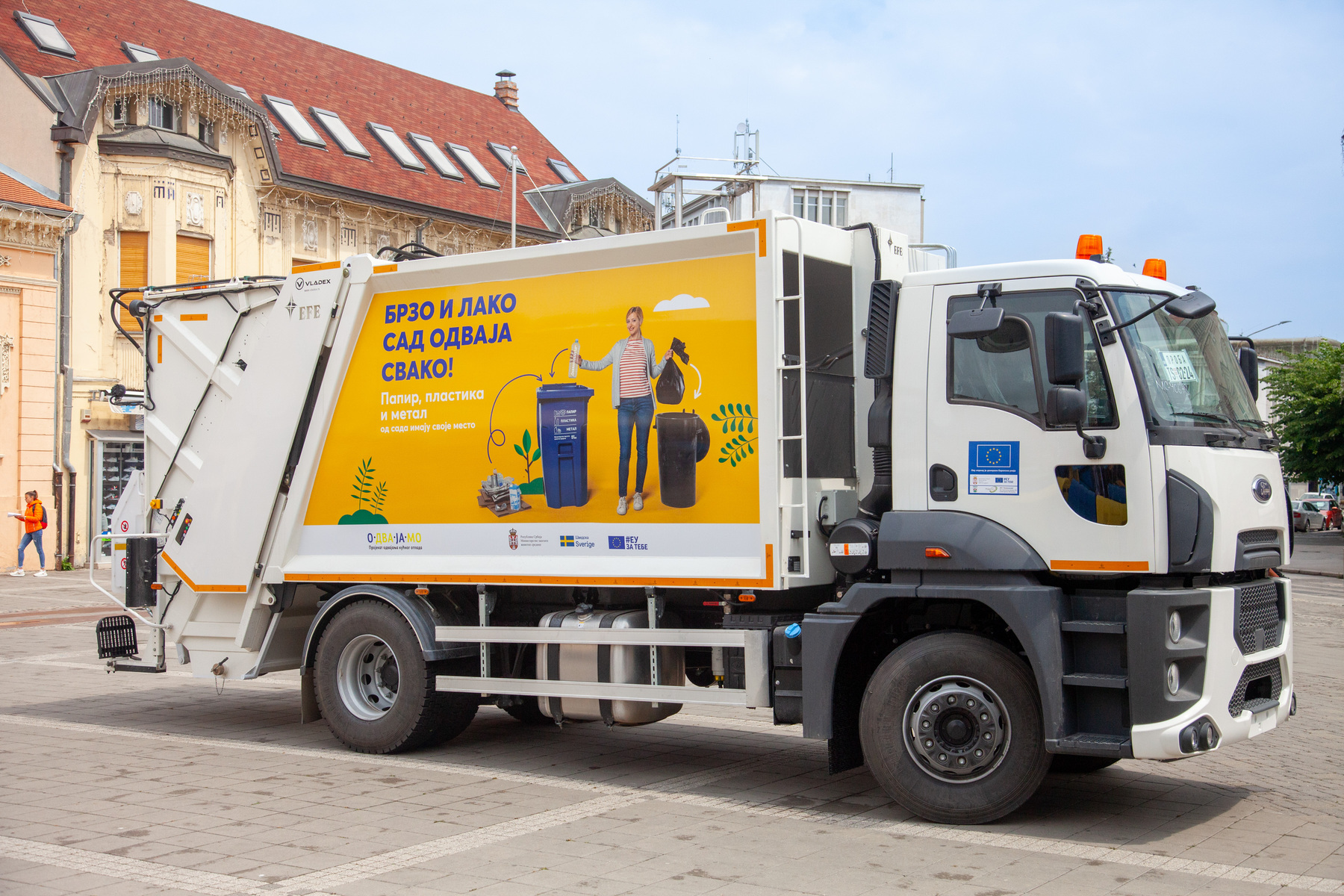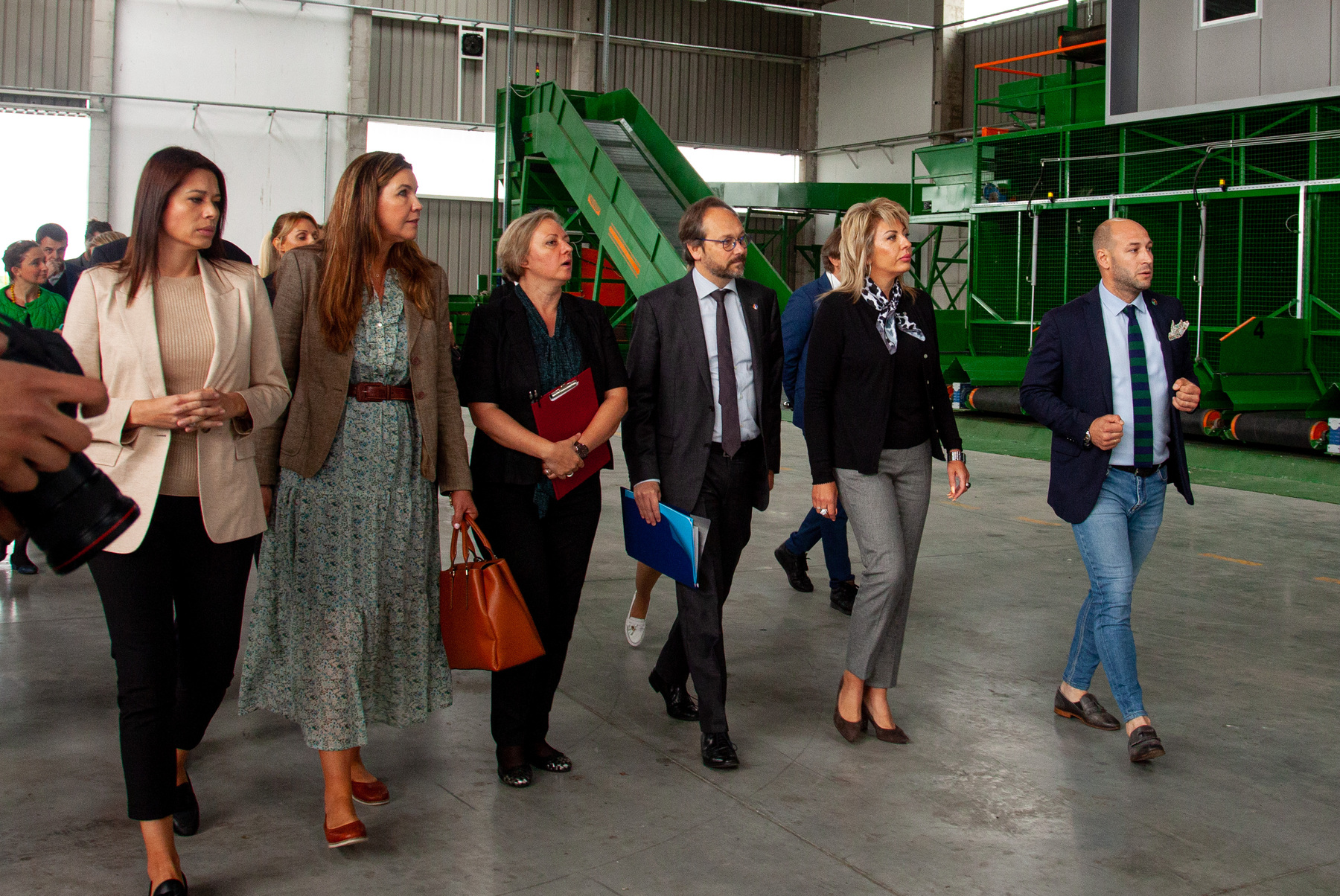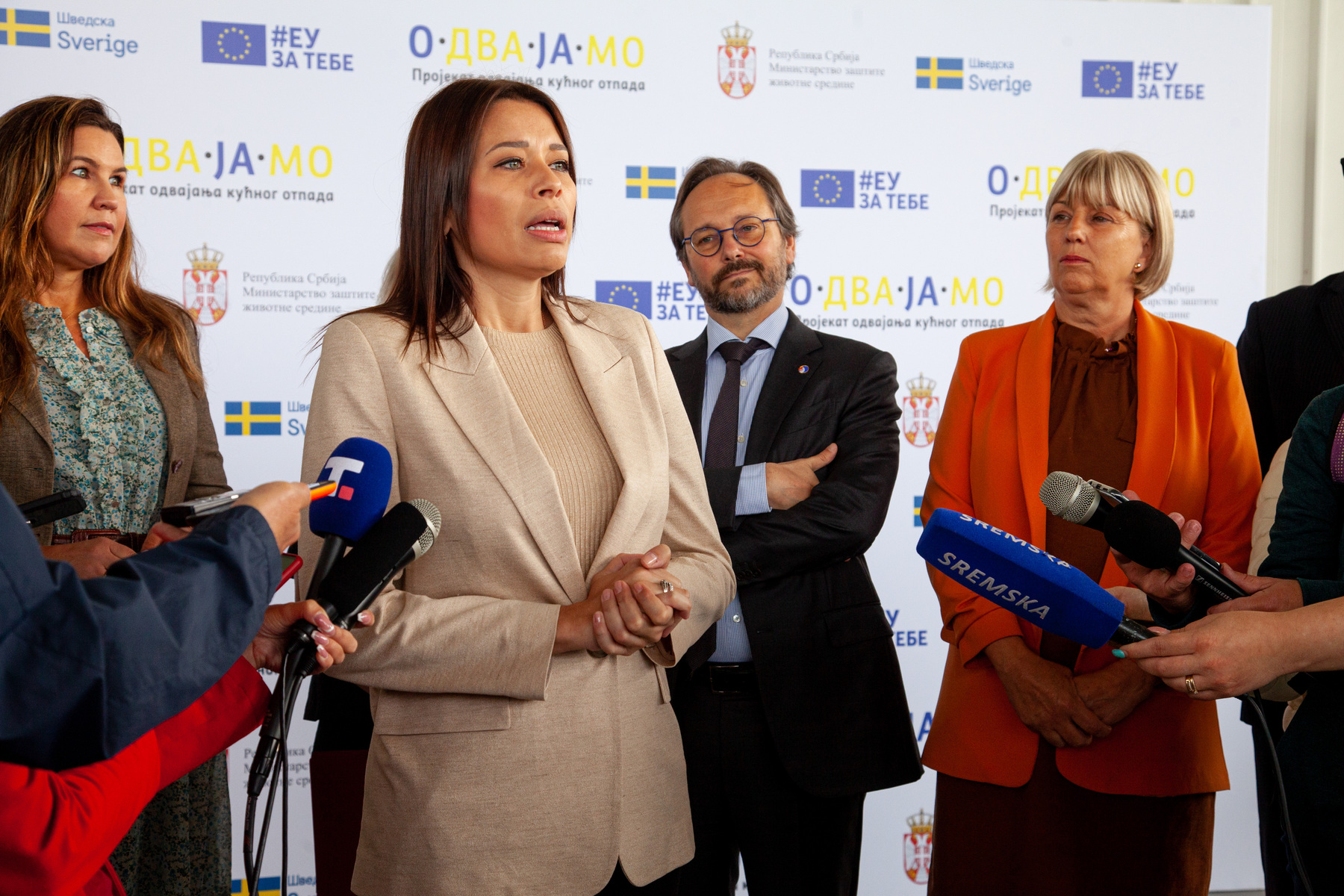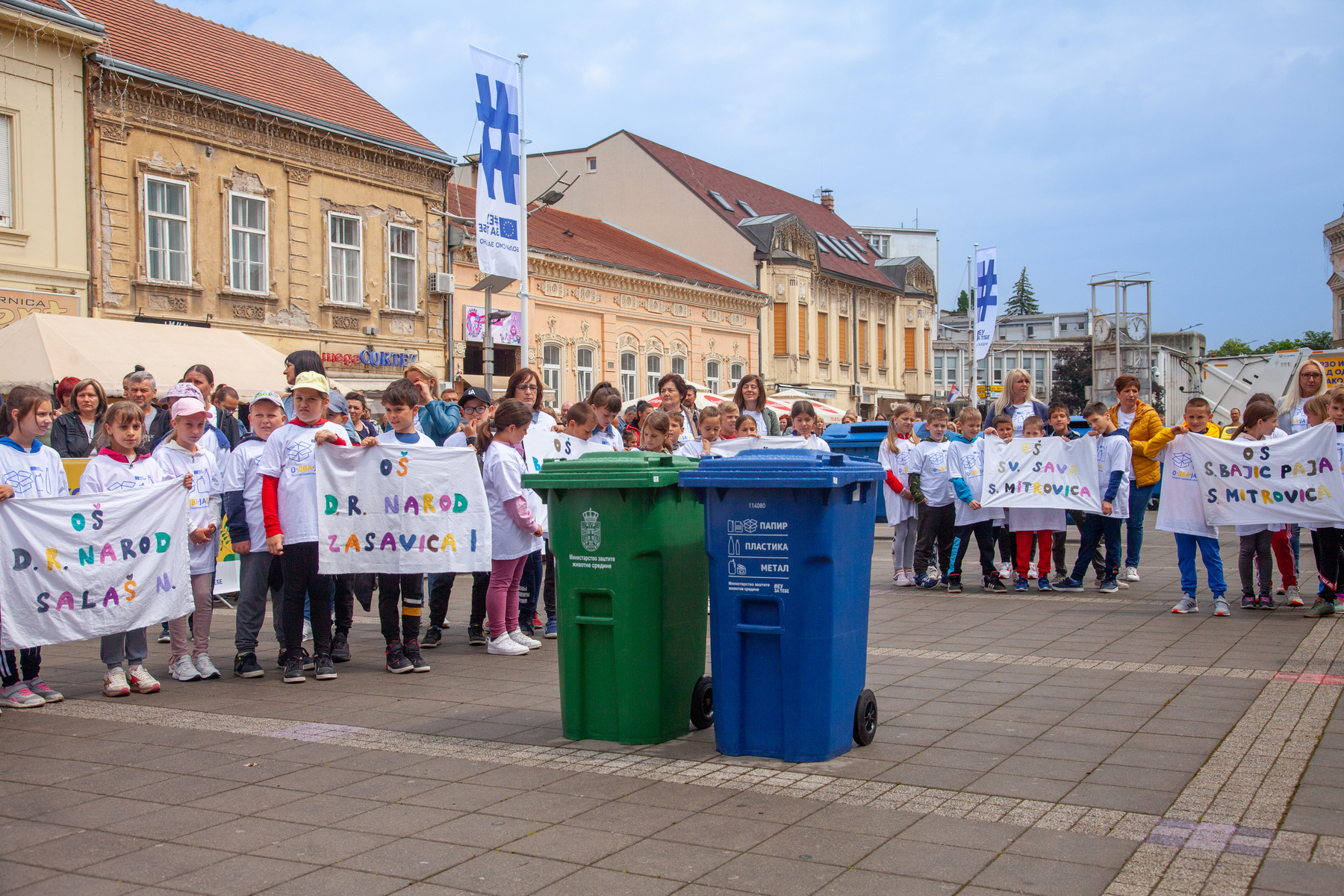Can Serbia manage waste as the European Union does? Yes, it can!
This started to show on May 30, when the public in Sremska Mitrovica saw a presentation of a big support project for Household Waste Separation in 17 Serbian municipalities: Sremska Mitrovica, Šabac, Šid, Bogatić, Užice, Čačak, Ivanjica, Čajetina, Požega, Lučani, Bajina Bašta, Kosjerić, Pirot, Babušnica, Bela Palanka, Dimitrovgrad, and Pančevo.
The Project for Household Waste Separation titled O-DVA-JA-MO aims to recycle the part of the waste generated in households, in order to reduce the quantities that end up in landfills, with a view to increasing the recycling rate across the four regions to 15% over the next two years. According to existing data, Serbia’s household waste recycling rate is less than 2%, while in the EU, 48% of municipal waste is recycled.

O-DVA-JA-MO is implemented with the support of the Ministry of Environmental Protection of the Republic of Serbia and the help of the European Union and the Embassy of Sweden. The project secures expertise and equipment to local authorities in order to design and improve the source separation system.O-DVA-JA-MO presentation took place in Srem’s biggest city as part of the opening ceremony of the 2022 European Green Week in Serbia, where the attendees heard from the EU Ambassador to Serbia H.E. Emanuele Giaufret, Serbian Minister of Environmental Protection Irena Vujović, Swedish Ambassador H.E. Annika Ben David, and representatives of Sremska Mitrovica Mayor Svetlana Milovanović and JKP Komunalije’s spokesperson Tamara Milković.

The delegation visited the Regional Waste Management Centre Srem-Mačva, funded by the European Union, and an hour later the opening ceremony was held in the main square with the invitation sent out to everyone in Sremska Mitrovica, the first municipality prepared for waste separation. The event put a special spotlight on the youngest, who need to build awareness of the importance of separating household waste.
“We depend on each other and, as the pandemic has reminded us, we cannot replace human interaction. We need to work together on efforts to stop global warming and pollution. Pollution affects everyone and has long-term impacts on human health. Especially in Southeast Europe, the population is exposed to high levels of air pollution by burning fossil fuels, while wastewater is overly discharged without any treatment, and solid waste is disposed of in makeshift landfills. However, there is hope. “Only by working together can we make a difference for society,” said Ambassador Giaufret.
Vujović thanked the European partners
for their comprehensive support to Serbia in the project activities aimed at
improving the waste management system.
“By implementing this project, Sremska Mitrovica and other local governments included in it will improve waste management and the state of the environment.” Assistance to local governments is provided as a donation of blue bins that will be distributed to people so that they can separate dry, recyclable waste in their households. Blue and yellow containers that will be set up in residential areas and vehicles for the waste collection were also donated. “Separation of waste, in households, enables recycling of a part of the waste and reduces the quantities that end up at the landfill,” said Vujović.“

The Project for Household Waste Separation in four regions in Serbia, including the landfill in Sremska Mitrovica, is important not only for this district but for the entire country because it practically shows how, with EU help, local governments can use systematic collection and sorting to reduce landfill pressure. All people in Serbia, especially young people, can do a lot in their households with source separation to reduce the quantities that are systematically disposed of, and this project will base its success on all of us have the awareness to join it. By investing in environmental protection, in everything that the Green Agenda involves, we as a society are investing in our future and safety,” Joksimović noted.
A healthy environment is even more important than the cost-effectiveness of recovering high-quality waste resources and putting them back to use. The 17 cities serviced by the four regional landfills where the Project for Household Waste Separation Project will be implemented collect 215,000 tons of waste annually. It is estimated that as much as 70,000 tons could be recovered. Until now, even if there was goodwill for waste separation, it was impossible because there were no equipment, organization, or separation systems. In order to achieve that now, the European Union and the Government of the Republic of Serbia are securing 26 vehicles for the transport of recyclable waste and more than 90,000 containers and bins, as well as a big public information campaign.

The European Union has funded the project with six million euros, while Serbian national and local agencies are participating in the project with an investment of 1.8 million euros. The technical support was provided by the Embassy of Sweden to support national agencies and all 17 local governments in the successful implementation of the household waste separation project. The local governments and public utility companies are fully responsible for providing the new services.
The Waste Management Programme in Serbia 2022–2031, adopted by the Government of Serbia as part of EU accession, aims to improve the municipal waste management system through: (1) increased recycling rates, (2) reduced disposal of biodegradable waste in landfills, and (3) reduced disposal of waste in makeshift landfills.
Apart from Sremska Mitrovica, the other 16 municipalities successively received the equipment in the form of household bins, containers, and adequate vehicles for transport to regional waste management centers.
Now everyone can separate, quick and easy!
Ministry
of Environmental Protection: projekti@eko.gov.rs